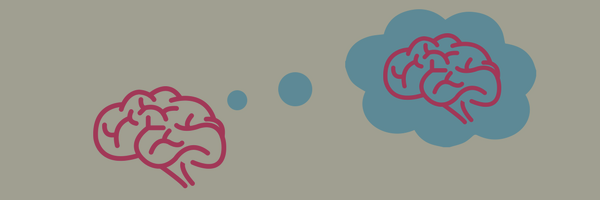What is metacognition I hear you ask! Explained simply it is the awareness and understanding of one’s thought process. It refers to the processes used to plan, monitor and assess one’s understanding and performance and includes an awareness of one’s own thinking and learning.
Thinking about thinking - understanding and learning about how you think can help you to make positive changes to benefit you in the future.
As adults, this is something that we do every day without realising; we may reflect on our thoughts, feelings, needs and behaviours or our learning, challenges and set backs. Metacognition enables us to make plans on how or what we might do differently, or why we did something a certain way and alter this accordingly.
How can metacognition be used in education?
In education today, metacognition is being used as a highly beneficial strategy aimed to improve children’s overall success and performance. Developing this skill allows children to develop the necessary strategies to help them to understand how they learn, what works for them and what doesn’t. Also, ultimately, it helps us to understand how to adapt these in the future and encourages and equips children with the necessary skills to become self-directed learners.
“Our job as teachers is not to ‘prepare’ kids for something; our job is to help kids learn to prepare themselves for anything.”
It has been supported by research as a highly effective tool. According to the Education Endowment Foundation ‘metacognition is one of two of the most effective educational interventions it has tested.’
Students should be encouraged to think about the ways that they successfully learn, asking questions such as:
What should I do first? Is anything confusing me? Can I explain what I have learnt? Should I ask for help? Why did I get this answer wrong? Can I apply this in a different context? How can I do better next time?
These kind of questions help students to plan more effectively, understand their strengths and weaknesses and to reflect and improve upon their learning.
Metacognition can be used as an ideal tool especially for revision (have a look at our other blogs for more revision tips!). Gaining an insight into how we think and learn can allow us to make appropriate and informed decisions around our revision choices - learning approaches and strategies - as well as our strengths and weaknesses, ultimately being more successful.
At INICIO, we understand that learning about how our students think and learn is fundamental to helping them to succeed and build their confidence.
Stages of metacognition:
There are a number of stages in the process of metacognition and these stages can be repeated continuously, making any changes to one’s learning and thinking.
Assessment - What do I know about my own learning? What is my knowledge of my own cognitive abilities?
Evaluation - An individual’s strengths/ weaknesses.
Planning - Plan the approach, what strategies you might use, what you will and won’t do, what will be effective or less effective.
Application - Applying these strategies, ideas, thoughts.
Reflection - What went well? What didn’t go well? What should you do or not do next time? What have you learnt?
There we have it, the basis of metacognition - thinking about thinking! A simple but highly effective approach; being aware of one’s own thought processes helps us to become aware of our strengths and weaknesses, to take appropriate measures to adapt these in a positive way and to continuously make appropriate changes when required to help benefit our learning and thinking!
Want to know more? Have a look at the video below for more details :)



